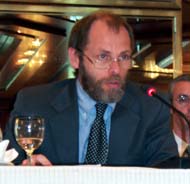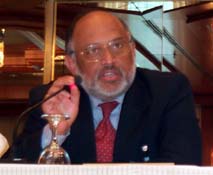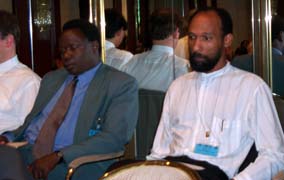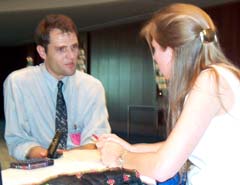 |
CAPACITY BUILDING
Delegates convened to consider issues relating
to capacity building in non-Annex I countries and hear presentations by
representatives of the Global Environment Facility (GEF) on the Climate
Development Initiative (CDI). Delegates head brief reports by regional
experts. Issues raised included: lack of financial resources, inefficient
management of human resources and information, inability to retain human
capacity, and a low level of economic, managerial and communication skills.
On possible elements for a draft framework for capacity building, several
delgates stressed the need for capacity building to be country-driven.
The G-77/China stressed that capacity building be a continuous, integrative,
and comprehensive process implemented within a specific time frame and
based on country priorities. On the role of institutions, several delegates
called for clear guidance to the GEF to ensure adequate funding for capacity
building initiatives. The G-77/China said that communications should be
the main source of information to monitor the effectiveness of capacity
building.
|







